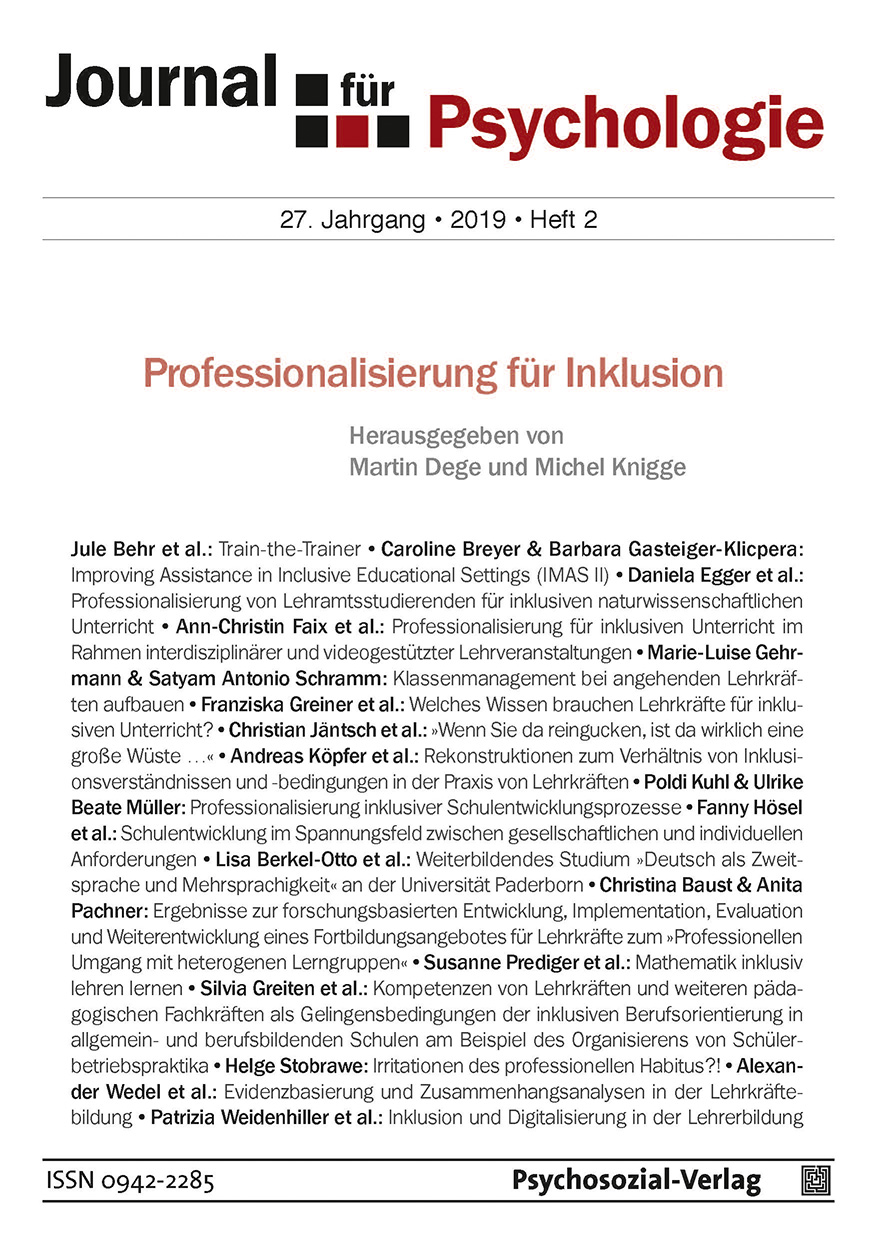Reconstructions of the relationship between understandings and conditions of inclusion in the practice of teachers
DOI:
https://doi.org/10.30820/0942-2285-2019-2-170Keywords:
understanding of inclusion, conditions of inclusion, documentary method, inclusive school development, teacher trainingsAbstract
In political and scientific discourse, highly heterogeneous understandings of inclusion exist. Against this background, the present article raises the question of how teachers process the inclusion agenda in their practices at school. Therefore, implicit teacher orientations are empirically reconstructed – using the documentary method of text interpretation – and related to the underlying conditions. For this purpose, some empirical perspectives on different understandings of inclusion are considered. The theoretical basis refers to so-called »conditions of inclusion« (Weisser 2017), which are taken as reference points for the interpretation of sequence analysis of interviews conducted in the research and development project StiEL (founded by the German Federal Ministry of Education and Research). Finally, implications for a design of teacher trainings in inclusion are derived.Downloads
Published
2020-05-01
How to Cite
Köpfer, Andreas, Katharina Papke, and Jürgen Gerdes. 2020. “Reconstructions of the Relationship Between Understandings and Conditions of Inclusion in the Practice of Teachers”. Journal für Psychologie 27 (2):170-91. https://doi.org/10.30820/0942-2285-2019-2-170.
Issue
Section
Editorial
License
Copyright (c) 2020 Journal für Psychologie

This work is licensed under a Creative Commons Attribution-NonCommercial-NoDerivatives 4.0 International License.
This license allows private use and unmodified distribution, but prohibits editing and commercial use (further information can be found at: https://creativecommons.org/licenses/by-nc-nd/4.0/).
The terms of the Creative Commons licence only apply to the original material. The reuse of material from other sources (marked with a reference) such as charts, illustrations, photos and text extracts may require further permission for use from the respective copyrights holder.



